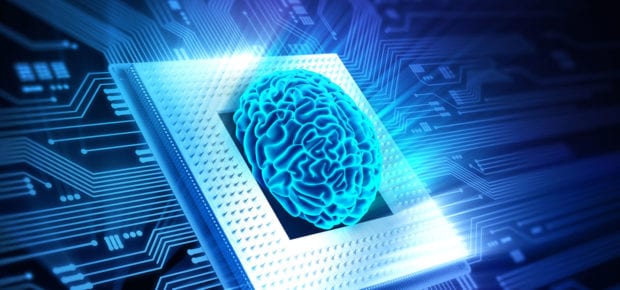May 19, 2017
As AI and IoT grows, the way industries and companies do business has been changing rapidly. IEEE Senior Member Qusi Alqarqaz weighed in with his thoughts on the ways that AI and IoT and machine learning will be a constant presence in our lives.
IEEE Transmitter: How is AI and IoT impacting industry?
Qusi Alqarqaz: Internet of Things (IoT) and Artificial intelligence (AI) are changing how industries and customer-oriented companies are doing business. They’ve come to the conclusion that AI and IoT are shaping the future and will create a trend of success or failure. That is why, as stated in a recent report for Strategy & PWC, companies are investing heavily in such advanced technologies and making significant changes to their operating models and structures. They are even hiring new talent so they can be in the best position when the shift happens to the IoT and AI era. For example, big computer technology companies started investing in IoT hardware components such as sensors, actuators, connectivity, and real time analytics. This will increase their access to massive amounts of data generated by their customers which they can use toward improving their services and products.
IEEE Transmitter: As greater investment in AI and IoT flows into the Power Systems and Energy Markets, what changes do you see happening there?
Alqarqaz: Advanced technologies found their way into the power and energy sectors decades ago. Many of the power utilities companies already used analytic software and smart meters in their transmission and distribution networks. Customers already enjoy real time mobile energy management and billing apps. But with the introduction of more smart home devices, power utility companies found themselves forced to enter the era of digital technologies heavily. Microgrid and smart substations are on their way to the grid. Power companies started acquiring data science companies that have energy management services to collect the huge amount of data available from their customers. The customers already started using smart home devices such as Amazon Alexa and Google Home, as well as smart appliances and heating systems. The new home and business installations are more of gateway hubs now and utilities can benefit from this feedback data to develop customer relations.
IEEE Transmitter: With the rapid expansion of devices and sensors in IoT devices, how are artificial intelligence and machine learning going to be responsible for rounding up massive data sets to make positive decisions on behalf of buying consumers?
Alqarqaz: Data science is the core of machine learning (ML), a form of Artificial Intelligence that, with the aid of special computers and huge amounts of pre-labeled data, helps to identify future customer demands. This massive amount of data can be collected through browsing data or streaming. For example, ML algorithms can identify the needs of customers for certain products or services at lower prices. That is why big corporations that have access to massive customer data from their various interactions with online apps and websites, are investing heavily in data science. For example, Google just announced last March the acquisition of an online data science and ML company, which will give them access to one of the largest databases in the data science community.
IEEE Transmitter: What are some ways, or examples, that machine learning is already upon us? (examples: Pandora music uses it to determine what other songs you may enjoy, or Amazon to suggest books and movies you may also like)
Alqarqaz: From the collection of massive data from customers’ web browsing or clicking, companies will be able to match customer demand with goods and services at lower prices. Engineers can access research and papers much easier. Education, health care, law enforcement and many other sectors will benefit from ML applications. Just think of identifying risks from certain drugs or better medical assessment based on data collected on a large scale of previous studies and research.
IEEE Senior Member Qusi Alqarqaz is an electrical engineer with more than 27 years of experience in the power industry. He writes about technology, works as a technology consultant, and mentors students. He is a contributor to The Institute, EE Times, as well as the Analog, a newsletter for the IEEE Central Texas Section. He previously worked in Qatar, the United Arab Emirates, Turkmenistan and Jordan.





 Liquid Infrastructure: Our Planet's Most Precious Resource
Liquid Infrastructure: Our Planet's Most Precious Resource The Impact of Technology in 2025
The Impact of Technology in 2025 Quantum and AI: Safeguards or Threats to Cybersecurity?
Quantum and AI: Safeguards or Threats to Cybersecurity? Why AI Can't Live Without Us
Why AI Can't Live Without Us Bits, Bytes, Buildings and Bridges: Digital-Driven Infrastructure
Bits, Bytes, Buildings and Bridges: Digital-Driven Infrastructure Impact of Technology in 2024
Impact of Technology in 2024 Emerging AI Cybersecurity Challenges and Solutions
Emerging AI Cybersecurity Challenges and Solutions The Skies are Unlimited
The Skies are Unlimited Smart Cities 2030: How Tech is Reshaping Urbanscapes
Smart Cities 2030: How Tech is Reshaping Urbanscapes Impact of Technology 2023
Impact of Technology 2023 Cybersecurity for Life-Changing Innovations
Cybersecurity for Life-Changing Innovations Smarter Wearables Healthier Life
Smarter Wearables Healthier Life Infrastructure In Motion
Infrastructure In Motion The Impact of Tech in 2022 and Beyond
The Impact of Tech in 2022 and Beyond Cybersecurity, Technology and Protecting Our World
Cybersecurity, Technology and Protecting Our World How Technology Helps us Understand Our Health and Wellness
How Technology Helps us Understand Our Health and Wellness The Resilience of Humanity
The Resilience of Humanity Harnessing and Sustaining our Natural Resources
Harnessing and Sustaining our Natural Resources Creating Healthy Spaces Through Technology
Creating Healthy Spaces Through Technology Exceptional Infrastructure Challenges, Technology and Humanity
Exceptional Infrastructure Challenges, Technology and Humanity The Global Impact of IEEE's 802 Standards
The Global Impact of IEEE's 802 Standards Scenes of our Cyber Lives: The Security Threats and Technology Solutions Protecting Us
Scenes of our Cyber Lives: The Security Threats and Technology Solutions Protecting Us How Millennial Parents are Embracing Health and Wellness Technologies for Their Generation Alpha Kids
How Millennial Parents are Embracing Health and Wellness Technologies for Their Generation Alpha Kids Space Exploration, Technology and Our Lives
Space Exploration, Technology and Our Lives Global Innovation and the Environment
Global Innovation and the Environment How Technology, Privacy and Security are Changing Each Other (And Us)
How Technology, Privacy and Security are Changing Each Other (And Us) Find us in booth 31506, LVCC South Hall 3 and experience the Technology Moon Walk
Find us in booth 31506, LVCC South Hall 3 and experience the Technology Moon Walk Virtual and Mixed Reality
Virtual and Mixed Reality How Robots are Improving our Health
How Robots are Improving our Health IEEE Experts and the Robots They are Teaching
IEEE Experts and the Robots They are Teaching See how millennial parents around the world see AI impacting the lives of their tech-infused offspring
See how millennial parents around the world see AI impacting the lives of their tech-infused offspring Take the journey from farm to table and learn how IoT will help us reach the rising demand for food production
Take the journey from farm to table and learn how IoT will help us reach the rising demand for food production Watch technical experts discuss the latest cyber threats
Watch technical experts discuss the latest cyber threats Explore how researchers, teachers, explorers, healthcare and medical professionals use immersive technologies
Explore how researchers, teachers, explorers, healthcare and medical professionals use immersive technologies Follow the timeline to see how Generation AI will be impacted by technology
Follow the timeline to see how Generation AI will be impacted by technology Learn how your IoT data can be used by experiencing a day in a connected life
Learn how your IoT data can be used by experiencing a day in a connected life Listen to technical experts discuss the biggest security threats today
Listen to technical experts discuss the biggest security threats today See how tech has influenced and evolved with the Games
See how tech has influenced and evolved with the Games Enter our virtual home to explore the IoT (Internet of Things) technologies
Enter our virtual home to explore the IoT (Internet of Things) technologies Explore an interactive map showcasing exciting innovations in robotics
Explore an interactive map showcasing exciting innovations in robotics Interactively explore A.I. in recent Hollywood movies
Interactively explore A.I. in recent Hollywood movies Get immersed in technologies that will improve patients' lives
Get immersed in technologies that will improve patients' lives